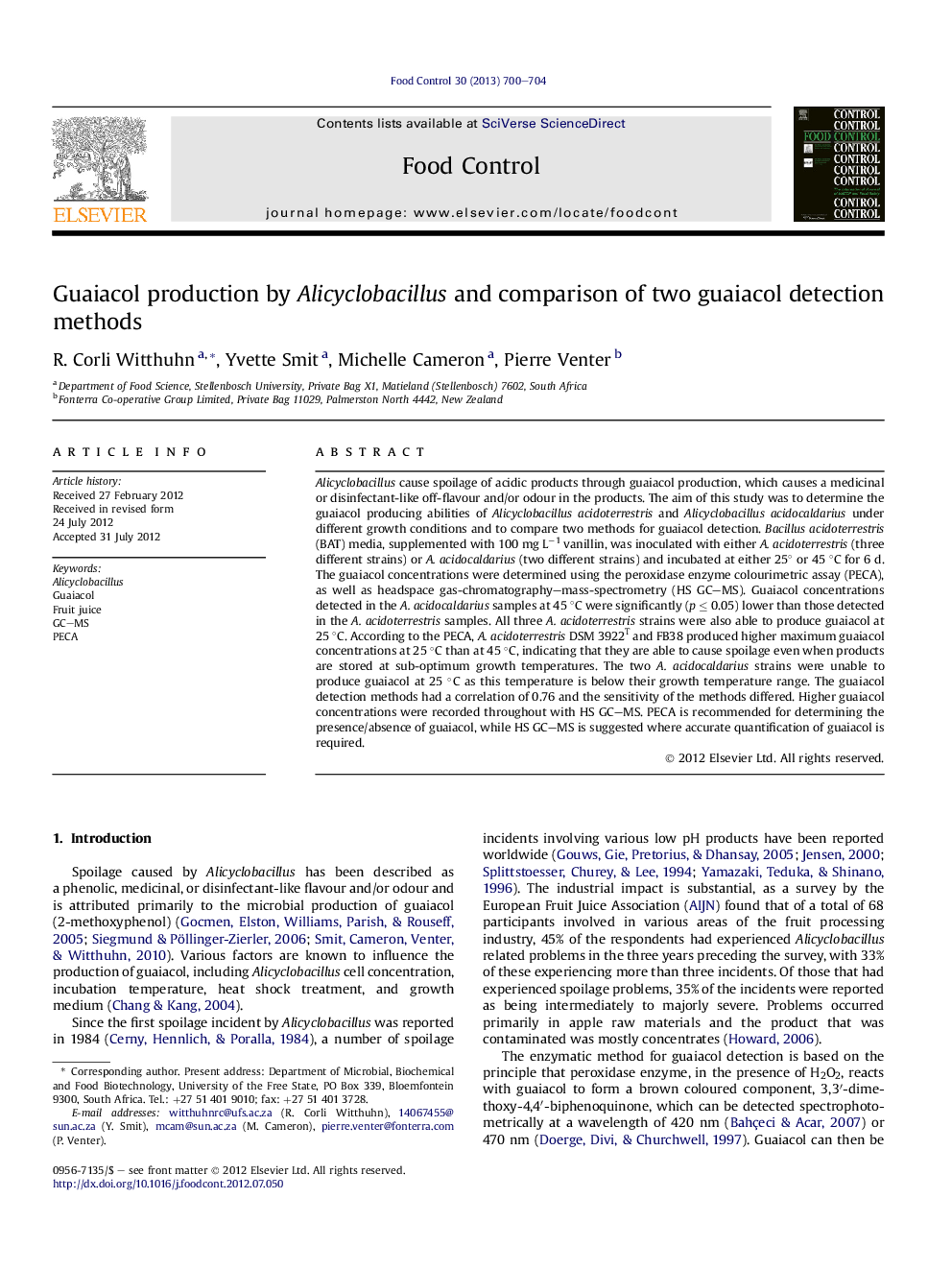| Article ID | Journal | Published Year | Pages | File Type |
|---|---|---|---|---|
| 4559490 | Food Control | 2013 | 5 Pages |
Alicyclobacillus cause spoilage of acidic products through guaiacol production, which causes a medicinal or disinfectant-like off-flavour and/or odour in the products. The aim of this study was to determine the guaiacol producing abilities of Alicyclobacillus acidoterrestris and Alicyclobacillus acidocaldarius under different growth conditions and to compare two methods for guaiacol detection. Bacillus acidoterrestris (BAT) media, supplemented with 100 mg L−1 vanillin, was inoculated with either A. acidoterrestris (three different strains) or A. acidocaldarius (two different strains) and incubated at either 25° or 45 °C for 6 d. The guaiacol concentrations were determined using the peroxidase enzyme colourimetric assay (PECA), as well as headspace gas-chromatography–mass-spectrometry (HS GC–MS). Guaiacol concentrations detected in the A. acidocaldarius samples at 45 °C were significantly (p ≤ 0.05) lower than those detected in the A. acidoterrestris samples. All three A. acidoterrestris strains were also able to produce guaiacol at 25 °C. According to the PECA, A. acidoterrestris DSM 3922T and FB38 produced higher maximum guaiacol concentrations at 25 °C than at 45 °C, indicating that they are able to cause spoilage even when products are stored at sub-optimum growth temperatures. The two A. acidocaldarius strains were unable to produce guaiacol at 25 °C as this temperature is below their growth temperature range. The guaiacol detection methods had a correlation of 0.76 and the sensitivity of the methods differed. Higher guaiacol concentrations were recorded throughout with HS GC–MS. PECA is recommended for determining the presence/absence of guaiacol, while HS GC–MS is suggested where accurate quantification of guaiacol is required.
► All three A. acidoterrestris strains were able to produce guaiacol at 25 °C. ► According to the PECA, A. acidoterrestris produced higher maximum guaiacol concentrations at 25 °C than at 45 °C. ► These bacteria may be able to cause spoilage during storage at sub-optimum growth temperatures. ► The two A. acidocaldarius strains were unable to produce guaiacol at 25 °C. ► PECA can be used for presence/absence, while GC–MS is recommended for quantification of guaiacol.
